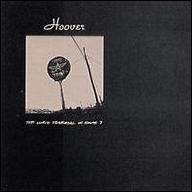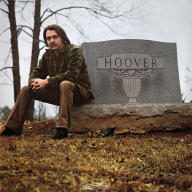Early on, Hoover was wrongly dubbed a Fugazi copycat, but played intense, angular, ominous music (to which late-'90s Fugazi may actually owe a debt) thanks to the otherworldly rhythm section of Fred Erskine on bass/vocals and Chris Farral on drums and the shattering dual guitar and vocal onslaught of Joe McRedmond and Al Dunham. With two explosive singles released in 1993, Hoover proved themselves to be one of D.C.'s most exciting new bands. Their first and only album on Dischord -- The Lurid Traversal of Route 7, released in February of 1994 -- sealed the deal. Combining the compulsive power of Drive Like Jehu, a loud-soft dynamic that was previously explored by Slint and would later be perfected by Mogwai, and the three vocalists' dramatic, purging lyrics, Hoover unleashed a fury that would not be soon forgotten.
But, upon returning home to D.C. in April of 1994, following a tour in support of The Lurid Traversal, Hoover announced that the band would split. McRedmond and Erskine went on to form the Crownhate Ruin, which disbanded after the release of their 1995 full-length Until the Eagle Grins, and Erskine continued to play in June of 44. Dunham went on to form Regulator Watts and Albilene. Hoover had a brief reunion in 1997 to record the last four songs they wrote before the band's end. These songs were released as a self-titled EP on Slowdime in 1998. ~ Charles Spano, Rovi
|
1
|
|
Electrolux |
|
2
|
|
Distant |
|
3
|
|
Route 7 |













